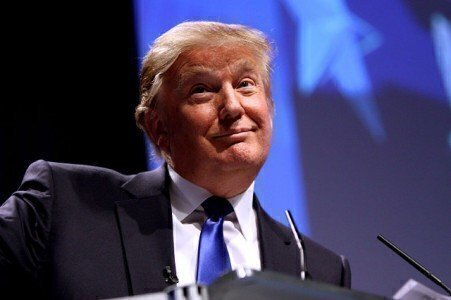Presidential candidate Donald Trump’s $500 million lawsuit against Univision includes allegations that the television network violated his Constitutional rights. But what are the rights at issue and are they a key component of the lawsuit?
 Trump and Miss Universe LLP (or MUO) filed suit on June 30 in the New York Supreme Court after Univision declined to broadcast the Miss USA and Miss Universe pageants after Trump made controversial remarks during a presidential campaign speech. Alberto Ciurana, a Univision executive, was also named in the lawsuit.
Trump and Miss Universe LLP (or MUO) filed suit on June 30 in the New York Supreme Court after Univision declined to broadcast the Miss USA and Miss Universe pageants after Trump made controversial remarks during a presidential campaign speech. Alberto Ciurana, a Univision executive, was also named in the lawsuit.
Link: Read The Lawsuit
Trump and the Miss Universe Group want $500 million in damages awarded based on claims of breach of contract, defamation, breach of covenant of good faith and fair dealing, and intentional interference of contractual relationship.
“Univision has no right to terminate its relationship with MUO and refuse to broadcast the upcoming Miss USA pageant,” the suit claims. It said that under the terms of the agreement between the network, Trump and MUO that Univision didn’t have a contractual right to drop the show because “it does not agree with Mr. Trump’s longstanding views or statements, all of which are protected by the First Amendment and have been echoed many times in this country.”
Univision issued a statement about the lawsuit on Tuesday.
“We just reviewed Mr. Trump’s complaint for the first time, and it is both factually false and legally ridiculous,” Univision said. “We will not only vigorously defend the case, but will continue to fight against Mr. Trump’s ongoing efforts to run away from the derogatory comments he made on June 16th about Mexican immigrants. Our decision to end our business relationship with Mr. Trump was influenced solely by our responsibility to speak up for the community we serve.”
The lawsuit lists five causes for action against Univision, none of which directly reference the First Amendment.
The First Amendment reads as follows: “Congress shall make no law respecting an establishment of religion, or prohibiting the free exercise thereof; or abridging the freedom of speech, or of the press; or the right of the people peaceably to assemble, and to petition the government for a redress of grievances.”
The First Amendment applies only to governmental action, not to a private party like Univision. But Trump does cite the alleged violation of his First Amendment rights as the motivation behind Univision’s decision to breach the contract.
“While Univision has claimed in the media that its decision to cut ties with MUO came in response to certain comments by Mr. Trump during a June 16, 2015 campaign speech announcing his candidacy for President of the United States, the decision was, in reality, a thinly veiled attempt by Univision, a privately held company principally owned by longtime Clinton Foundation donor and current Hillary Clinton fundraiser, Haim Saban, to suppress Mr. Trump’s freedom of speech under the First Amendment as he begins to campaign for the nation’s presidency and, in recent weeks, has dramatically risen in the polls while expressing critical views of Mrs. Clinton,” the lawsuit claims.
Trump also seeks damages for defamation, alleging that Ciurana, the Univision executive, posted a message on Instagram comparing Trump to Dylann Roof, the accused perpetrator of a racially motivated shooting in South Carolina.
Defamation is also another legal concept related to the First Amendment, but state law generally defines its elements. Trump’s lawyers claim that Univision made false statements to third parties, with malice, and with the intent to injure Trump’s “reputation in this business as a media figure and well-known businessman.” In turn, Univision could claim its statement was made about Trump as an individual.
Also under New York law, Trump may need to prove Univision made false statements with actual malice, because Trump could be considered a public figure under state law. (The actual malice test goes back to the Supreme Court’s landmark New York Times v. Sullivan decision in 1964.)
Trump also claims that the attempts to suppress his First Amendment rights were made by Univision to collude with NBC to cancel NBC’s broadcast of three pageants. (As of Wednesday, Trump had not sued NBC about the pageants.)
In the end, the Trump lawsuit is focused on the breech of the contract with Univision, and the contract isn’t available publicly. So if the lawsuit proceeds, more information will come out in court filings.







